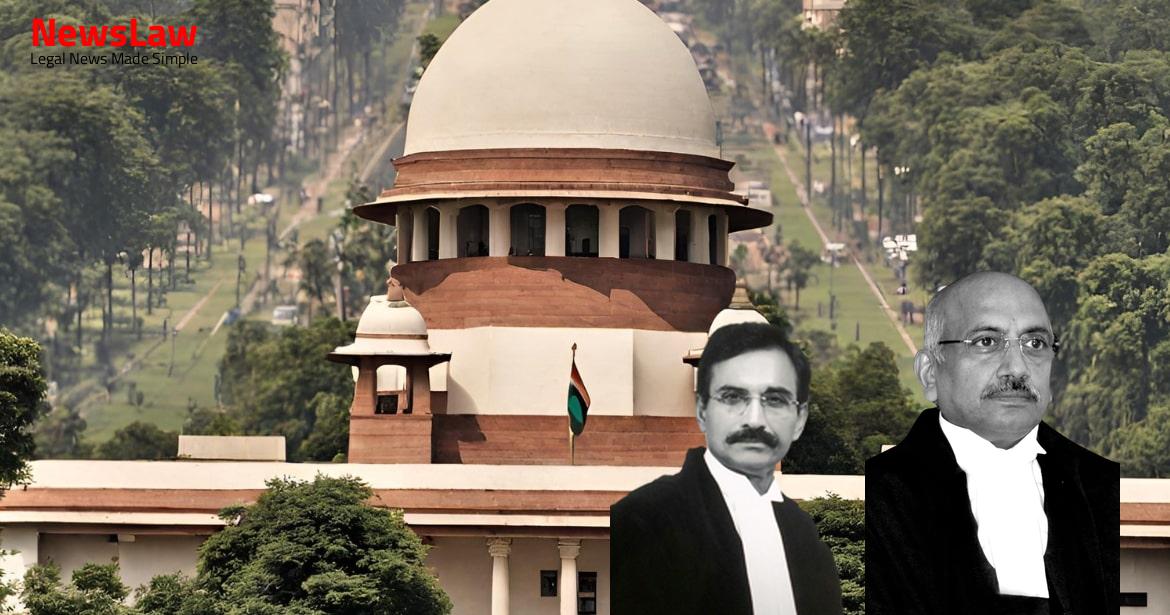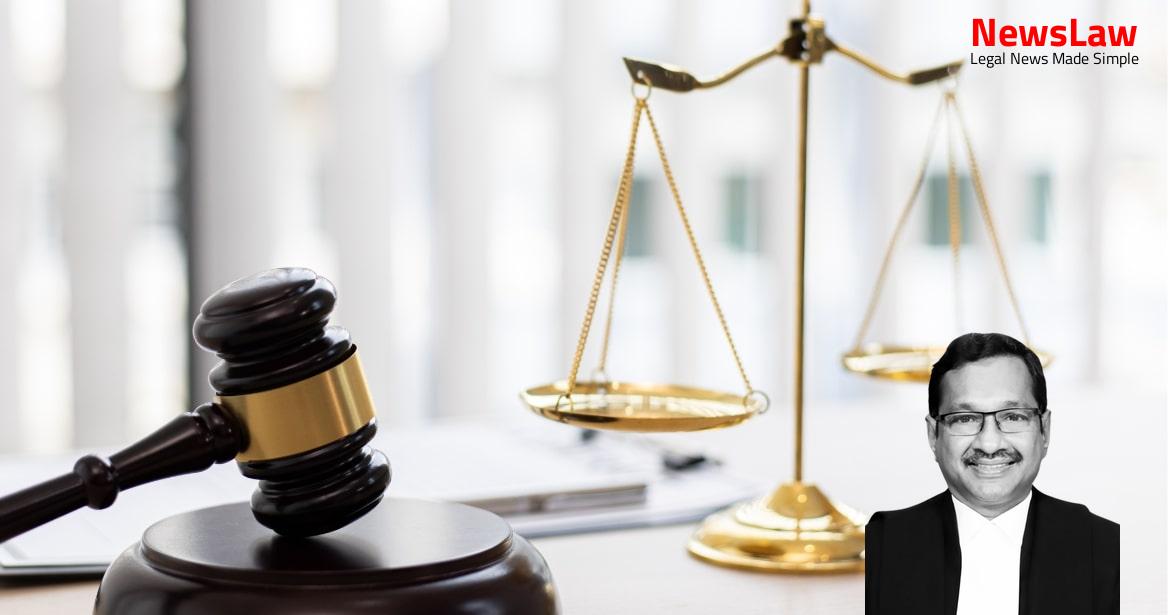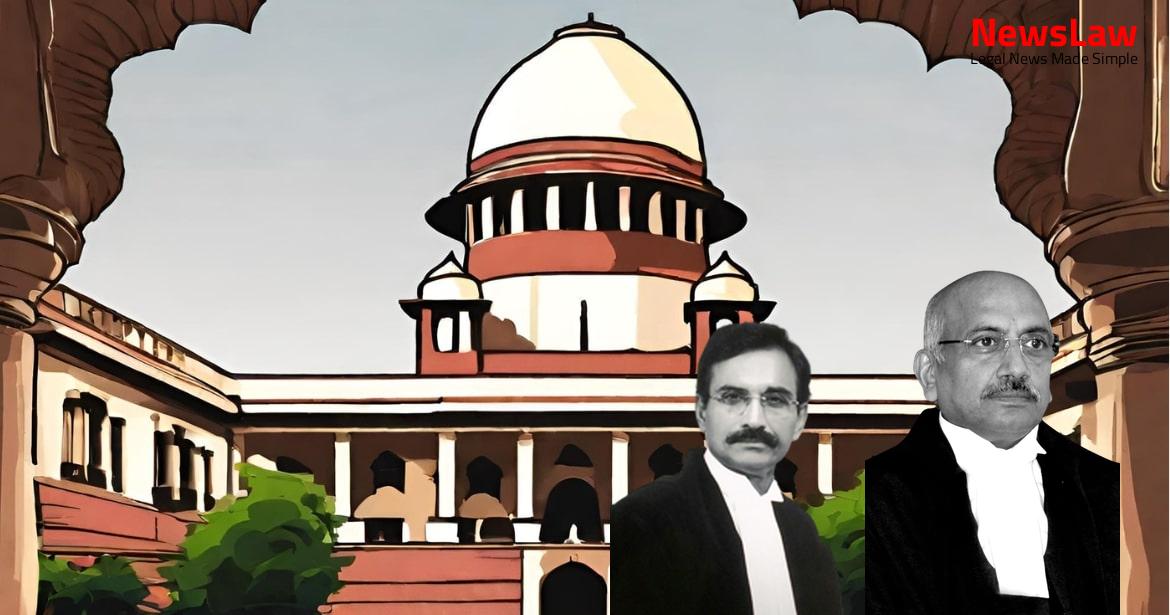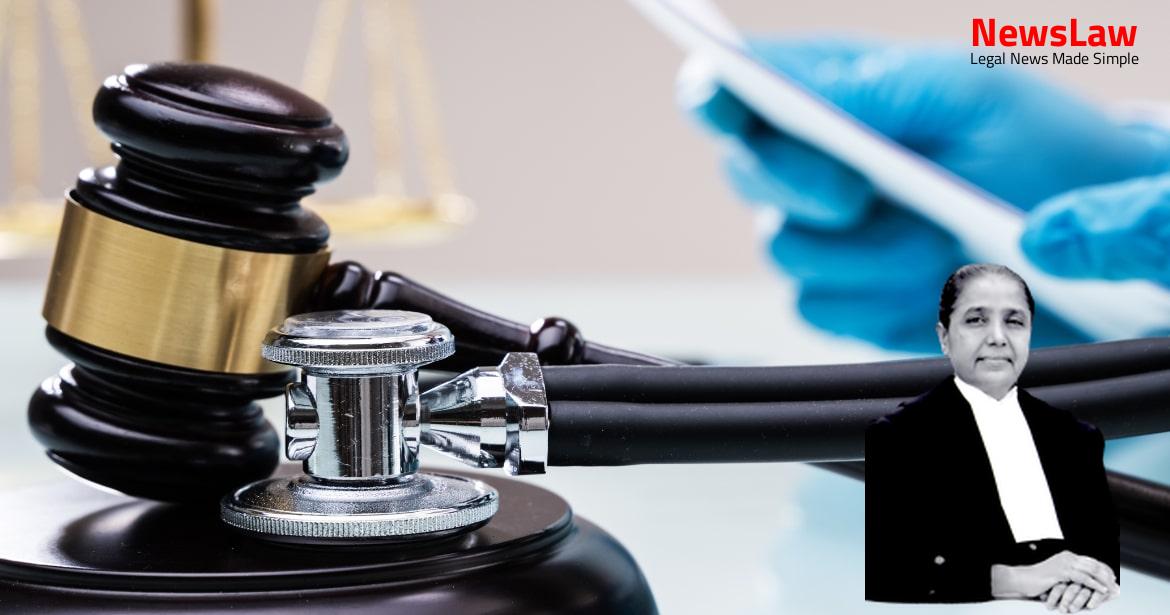The Supreme Court of India has delivered a significant judgment in the case involving Mohammad Badruddin and Punjab National Bank. The decision sheds light on the application of natural justice principles in disciplinary proceedings, focusing on key aspects of the disciplinary process. Stay tuned to learn more about this landmark ruling.
Facts
- The memo of charge was served upon Mohammad Badruddin on June 13, 1989, encompassing five charges.
- An appeal against the order of punishment was dismissed on March 8, 1995.
- In Civil Appeal arising out of Special Leave Petition (Civil) No 20770 of 2017, the challenge was against an order dated November 4, 1993, resulting in the respondent’s removal from service.
- The Disciplinary Authority imposed the penalty of removal based on the findings despite disagreement with charge Nos. 1 and 5.
- The writ petition was initially dismissed by the Single Bench on June 15, 2007.
- The Division Bench relied on Punjab National Bank & Ors. v. Kunj Behari Misra to determine that the order of punishment was vitiated due to reasons for disagreement with the Inquiry Report not being provided to the delinquent.
- The High Court order setting aside the punishment was challenged by the Bank in this appeal.
- The delinquent faced Departmental Inquiry on five charges, with no disagreement on the findings of charge No. 4.
- Non-furnishing of the report before passing the order of punishment violates natural justice principles, rendering the final order challengeable.
- The Division Bench concluded that not supplying a copy of the Inquiry Report to the delinquent prior to the punishment order, but along with it, was a violation of natural justice.
- The High Court’s order in LPA No. 261 of 2007 was set aside, and the original punishment of reversion to Junior Management Grade was restored.
- The order of removal was set aside by the Division Bench due to reasons of disagreement on charge Nos. 1 and 5 not being communicated to the delinquent.
- As the punishment order was issued before November 20, 1990, the failure to supply the Inquiry Report alone was not sufficient to set it aside.
- The civil appeals stem from the High Court’s April 18, 2017 order allowing the respondent Mohammad Badruddin’s appeals and setting aside the punishment, granting back wages and consequential benefits.
- The High Court considered separate appeals arising from two writ petitions imposing distinct punishments, both of which were set aside by the Division Bench in the intra court appeal.
Also Read: Property Inheritance Dispute: The Legacy of Chhotabhai Ashabhai Patel
Arguments
- The High Court’s reasoning that previous punishment of reversion to Junior Manager in the lowest grade weighed in the decision, without informing the delinquent, is not tenable.
- Citing judgments in Govt. of A.P. & Ors. v. Mohd. Taher Ali and Union of India & Ors. v. Bishamber Das Dogra to support the argument against considering past punishments without notice to the delinquent.
- Referring to Constitution Bench judgments in State of Orissa & Ors. v. Bidyabhushan Mohapatra and P.D. Agrawal v. State Bank of India & Ors. to assert that the principle of severability of charges indicates the punishment order should not be interfered with under Article 226.
- The case of Nicholas Piramal India Limited v. Harisingh is cited to emphasize that past records cannot be considered without notifying the delinquent.
- Arguing that the Constitution Bench judgment in K. Manche Gowda pertains to Article 311 provisions pre-42nd Constitutional Amendment, implying no notice of proposed punishment is required post-amendment.
- Relying on Mohd. Ramzan Khan’s case as validated by the Constitution Bench in B. Karunakar’s case to claim that after the Constitutional Amendment, notice of proposed punishment is not needed.
- Maintaining that Charge No. 4 is serious and independent, therefore the removal order based solely on that charge is not disproportionate to the misconduct, especially considering the gravity of the allegations.
- Opposing counsel relies on the Constitution Bench ruling in State of Mysore v. K. Manche Gowda to argue that the delinquent must be informed before considering past punishments.
Also Read: Lt. Col. Om Dutt Sharma vs. Ministry of Defence: OROP Entitlement for Army Postal Service Personnel
Analysis
- In B. Karunakar case, it was affirmed that issuing a notice to the delinquent employee to show cause against the proposed punishment was not necessary.
- In K. Manche Gowda’s case, the delinquent was recommended to be reduced in rank after an inquiry.
- Punjab National Bank and Others v. K. K. Verma held that the right to represent against the proposed penalty was taken away by the 42nd Amendment.
- In Mohd. Ramzan Khan case, it was established that the delinquent should receive a copy of the report and have the right to make a representation against it.
- The delinquent in P.D. Agrawal’s case was in appeal against a maintained action, which led to the dismissal of the appeal.
- The amended provisions of Article 311 of the Indian Constitution were discussed in Mohd. Ramzan’s case and later in B. Karunakar’s case.
- The judgment in Nicholas Piramal India Limited dealt with an Award by the Labour Court under the Industrial Disputes Act, 1947, with prospective effects stated.
- Kunj Behari Misra highlighted the importance of giving the delinquent an opportunity to be heard if the Disciplinary Authority differs with the Inquiry Report in their favor.
- The Court stated that if the order of punishment is vitiated, the proper relief is reinstatement with liberty to continue the inquiry from the stage of furnishing the report.
- The Labour Court’s jurisdiction allows for the review of punishment under Section 11-A of the said Act, as discussed in B. Karunakar case.
- The judgment focuses on the application of natural justice principles in disciplinary proceedings.
- The significance of communicating reasons of disagreement to the delinquent before imposing punishment is emphasized.
- The impact of the 42nd Constitutional Amendment on the requirement of serving notice for proposed punishment is discussed.
- The importance of apprising the delinquent of the Inquiry Officer’s report as the primary requirement post-amendment is highlighted.
- Previous punishments cannot be part of the charge sheet as they have finality in past proceedings.
- The principle that charge No. 4 alone may be sufficient for punishment but does not mandate removal from service is established.
- The role of natural justice in determining the validity of the order of punishment is reiterated.
- In cases where the order of punishment is set aside, remitting the matter back to the Disciplinary Authority is suggested for reconsideration.
- The analysis considers the implications of the amendment and clarifies its effect on the disciplinary process.
- Once a delinquent employee has reached the age of superannuation, reinstatement or suspension orders are not applicable.
- The delinquent in this case has attained the age of superannuation, so reinstatement or suspension orders are not possible.
Also Read: Financial Capacity and Specific Performance: A Landmark Judgment by the Supreme Court Of India
Decision
- The appeals are disposed of with the given directions and liberty.
- The delinquent has reached the age of superannuation, necessitating the Disciplinary Authority to decide on payment of back wages and terminal benefits within three months.
- The orders of punishment dated November 4, 1993, and the Appellate Authority are set aside, remanding the matter to the Disciplinary Authority for further consideration.
- The Disciplinary Authority is directed to determine the course of action on charge Nos. 1 and 5, and if necessary, on the basis of the undisputed charge No. 4.
- Civil Appeal arising out of Special Leave Petition (Civil) No 20488 of 2017 is allowed in view of the foregoing decisions.
Case Title: STATE BANK OF INDIA Vs. MOHAMMAD BADRUDDIN
Case Number: C.A. No.-005604-005604 / 2019



